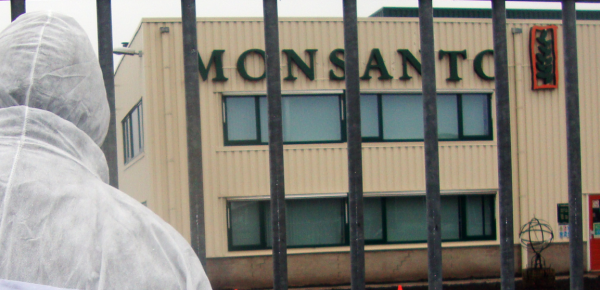
A recently released “state of the science” review by the Pesticide Action Network International (PAN) contains a wealth of research that documents the adverse environmental and human health impacts of glyphosate and glyphosate-based herbicides. The review’s findings emphasize the need for these compounds to be permanently phased out.
Health and environmental advocates say the monopoly on what has become the world’s most-used herbicide – which is the primary ingredient in Monsanto’s Roundup – ought to be a wake-up call for governments, regulatory agencies and farmers around the world who use it.
The documented adverse impacts on human beings detailed in the review include kidney and liver damage, acute poisoning, intestinal microbiome imbalances, cancer, genotoxicity, endocrine disruption, developmental reduction, reproductive problems, immune system damage and neurological dysfunction.
However, aggressive public relations marketing – propaganda – launched by Monsanto “has resulted in the widespread perception that the chemical is ‘safe,’” said the Soil and Health Association, in a press release.
The product continues to be used globally and in great amounts despite questions about its safety amid reams of new data that have identified the chemical herbicide’s ill-effects.
The review also casts aside so-called safety claims made by the company and instead emphasizes that there is an urgent need to reexamine all authorizations for the use of any products containing glyphosate.
The UN’s World Health Organization has said that its own findings indicate the chemical “probably” causes cancer. Other studies claim that Monsanto has known that for years.
In the review a full chemical profile of glyphosate is presented alongside the status of regulations of products that contain the chemical in many countries, as well as information on viable alternatives.
Glyphosate is included in PAN International’s “List of Highly Hazardous Pesticides” that have been targeted for global phase out, said the press release. The world organization is now calling for the herbicide to by replaced by more natural, eco-friendly substances that are effective in managing weeds “in diversified cropping systems and non-crop situations,” said the release.
The chemical is sprayed on tens of millions of acres of crops, including about 80 percent of GMO crops. It is also utilized in agriculture as a pre-harvest desiccant – which induces or sustains a state of dryness – so crops like wheat are uniform when it comes time to harvest them. But the end result is high glyphosate content in food.Is also widely used in home gardens and in public spaces along highways and other roadside areas, so it is extremely prevalent already in our environment.
“Some countries, including Sri Lanka, Italy and France have imposed a partial ban and/or phase out of the spraying of glyphosate in agriculture and in public areas. The European Union has extended approval for glyphosate for only 18 months instead of the usual 15 years,” said the press release.
Source:https://www.newstarget.com

No comments:
Post a Comment